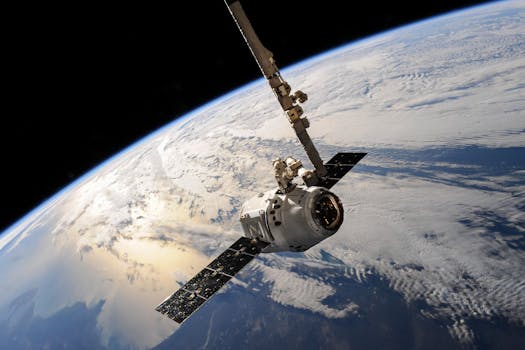The Future of Satellites: Revolutionizing Global Connectivity
The future of satellites is poised to revolutionize global connectivity, enabling faster and more reliable communication networks. With advancements in space technology, satellites are becoming increasingly important for a wide range of applications, from navigation and communication to earth observation and scientific research.

The Future of Satellites: Revolutionizing Global Connectivity
The future of satellites is poised to revolutionize global connectivity, enabling faster and more reliable communication networks. With advancements in space technology, satellites are becoming increasingly important for a wide range of applications, from navigation and communication to earth observation and scientific research. In this article, we will explore the future of satellites and their potential to transform the way we live and work.
Introduction to Satellites
Satellites have been a crucial part of our daily lives for decades, providing us with navigation, communication, and entertainment services. However, the future of satellites is expected to be even more exciting, with the development of new technologies and innovations that will enable faster, more reliable, and more secure communication networks. Satellites will play a vital role in connecting the unconnected, bridging the digital divide, and enabling the widespread adoption of emerging technologies such as the Internet of Things (IoT), artificial intelligence (AI), and 5G networks.
Advancements in Space Technology
Recent advancements in space technology have made it possible to launch smaller, more efficient, and more cost-effective satellites into orbit. This has led to a proliferation of satellite constellations, with companies such as SpaceX, OneWeb, and Amazon’s Kuiper Systems launching thousands of satellites into low Earth orbit (LEO). These satellite constellations will provide global coverage, enabling fast and reliable communication services for a wide range of applications, including broadband internet, IoT, and 5G networks.
Applications of Satellites
Satellites have a wide range of applications, from navigation and communication to earth observation and scientific research. With the development of new technologies and innovations, satellites are expected to play an increasingly important role in various fields, including agriculture, healthcare, finance, and education. For example, satellites can be used to monitor crop health, track disease outbreaks, and provide remote access to financial services. They can also be used to provide connectivity for rural and underserved communities, enabling access to education, healthcare, and other essential services.
Challenges and Opportunities
Despite the many opportunities presented by satellites, there are also challenges that need to be addressed. These include the risk of space debris, the need for sustainable and environmentally friendly launch systems, and the importance of ensuring the security and integrity of satellite communications. However, with the development of new technologies and innovations, there are also opportunities to address these challenges and create a more sustainable and equitable space industry. For example, companies such as SpaceX and Blue Origin are working on reusable launch systems, which could significantly reduce the cost and environmental impact of accessing space.



